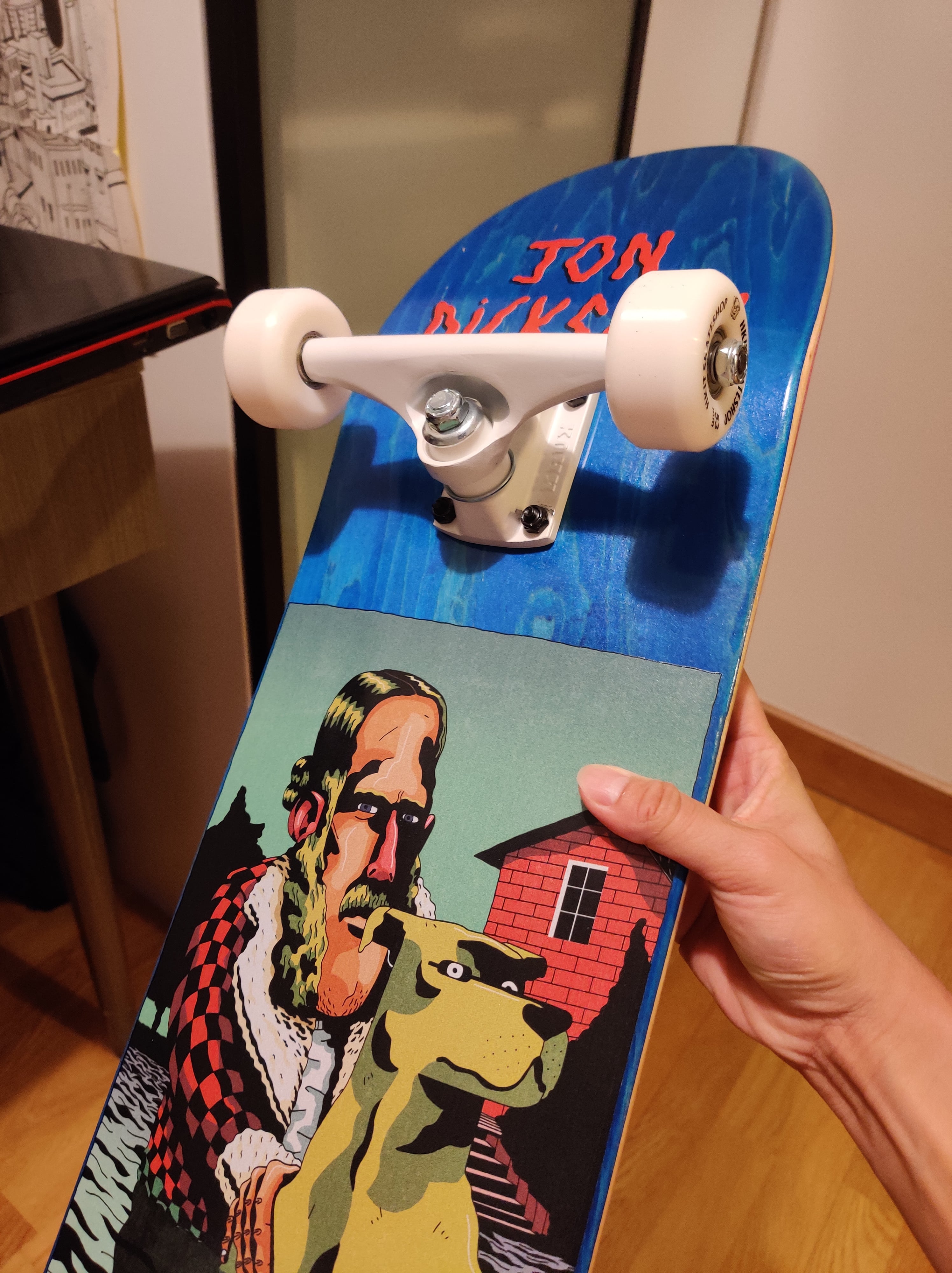

I've never dreamt of skateboarding as a kid. Growing up in a hometown devoid of skateboarding culture, I can't recall seeing a single instance of dicussions about this sport.
More than three decades later, the sport was still unattractive to me as it had always been. That is, until one fateful day during the Covid lockdown, I decided to buy a skateboard.
Haruki Murakami once recounted the moment that he realized he could be a novelist, after hearing the resounding crack of a baseball being struck at Jingu Stadium on an afternoon in 1978:
The satisfying crack when the bat met the ball resounded throughout Jingu Stadium. Scattered applause rose around me. In that instant, for no reason and on no grounds whatsoever, the thought suddenly struck me: I think I can write a novel.
Of course Haruki Murakami is a famous novelist while I am but an engineer who out of the blue starts skateboarding. Nevertherless, I, too, had that same pivotal moment, the moment when I questioned: why not go get a deck and try skateboarding?
I remembered walking into the skateboard shop in a shady building on a rainy night. Without any prior research and knew nothing about skateboards, I aimlessly wandered amist the displays, looking at the images of different boards. It felt more akin to shopping in an art shop rather than a skateboard store. After going back and forth for twenty minutes, I finally settled on my debut board, choosing it solely based on the whimsical expressions of a man and his accompanying dog depicted on the deck:


A year after the impusive purchase, I finally committed to practising. Undoubtly, the Covid lockdown played an important role, but perhaps my mind was still digesting why the hell a middle-aged man would suddenly delve into something he knew nothing about.
Anyway one year later a colleague of mine bought a skateboard as well, and we somehow started to gather in a park near Tsim Sha Tsui, a bustling shopping area in Hong Kong, to try some basic tricks like kickturn or shuvit (although my colleagues eventually quit and has not returned to this day, for the record).
I continued to practice Ollie and then attempted to land a shuvit. As I dedicated myself to this newfound passion, something totally disconnected from my previous life, it magically connected me to interesting people. For a shy guy like me, the presence of just one or two kind strangers means the world to me. Among them was a man (Kimi I know you are not reading) who I called a "skateboard priest", a Japanese traveler visiting Hong Kong for business. He showed me what it meant to be a true skater. Beyond his flamboyant tricks, he shared his contempt for businessmen using skateboard as a mere advertising tool, and even dismissed skateboarding's inclusion in Olympics, due to its departrue from its original essence(all of these are my own interpretations). Before bidding farewell and returning to his hotel, he taught me a trick called Fakie Bigspin, a feat that I doubted I would ever get it done.
From there, my involvement with skateboarding continued to evolve and expand beyond a mere talking point to impress others. Gradually, it occupies a part of my life, with each trick successfully landed offering me a unqiue joy unparalleled elsewhere.
The joy differs from a computer game joy and a reading joy. If there is such as a thing as tough love, I believe skateboarding is a form of tough joy. It's a joy that demands perseverance and acceptance of failure. Skateboarding is challenging, and even the best skateboarders may struggle to land a trick. Yet, we keep pushing. We fall and get back up. Fall and get back up. And slowly, a sense of vision starts to build up: we inch closer and closer. Days blur together, but THE DAY will come. The pain suffered gradually accumulates, like lava flowing into a volcano. Then, in one extraodinary moment, everything suddenly clicks and the trick is conquered. It may not be flawless, but it serves as the tipping point of the eruption of pure joy - the joy of feeling invincible and transforming suffering into something meaningful. It's, indeed, a tough joy.
The modern society easily deprives us of purposes and meanings, by making us feel irrelevant and replaceable. We don't have a goal to fight for, and we live everyday without getting hurt. Skateboarding definitely hurts me (the skateboard once bounded up and cut my jaw), but it also provides me a purpose - to go uphill with joy.
He who has a why to live for can bear almost any how. - Friedrich Nietzsche
